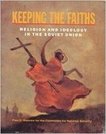Sort by: Author | Title | Publication Year
BOOKS
Judging Victims: Why We Stigmatize Survivors, and How They Reclaim RespectJennifer L. Dunn Choice Outstanding Academic Book!
"Why didn't she resist?" "Why is he telling us only now?" "Why can't she move on?" Unpacking the questions that cast victims as deviants, Jennifer Dunn critically examines why we stigmatize survivors of rape, battering, incest, and clergy abuse—and how they reclaim their identities.
Dunn explores the shifting More > |  |
Judicial Politics in New Democracies: Cases from Southern AfricaPeter VonDoepp That judicial institutions are important for emerging democracies leaves little room for debate. But to what extent do judiciaries in these new democracies maintain their autonomy? And what accounts for varying levels of autonomy across states? Drawing on the cases of Malawi, Zambia, and Namibia—and offering a novel analytical framework—Peter VonDoepp illuminates why power holders More > |  |
Just Give Money to the Poor: The Development Revolution from the Global SouthJoseph Hanlon, Armando Barrientos, and David Hulme Amid all the complicated economic theories about the causes and solutions to poverty, one idea is so basic that it seems radical: bypass governments and NGOs, provide direct cash transfers, and let the poor decide how to use their money. Discussing this alternative, looking at both problems and successes and stressing that cash transfers are neither charity nor a safety net, the authors provide a More > |  |
Justice and Reconciliation: After the ViolenceAndrew Rigby How do societies that have been wracked by violent conflict reconcile themselves to their recent history—and lay the foundations for a peaceful, stable future? How do they deal with the impulse for revenge? What should be done with those responsible for acts of state violence under a previous regime? How can individuals and communities best be helped to cope with the aftermath of national More > |  |
Justice Without ViolencePaul Wehr, Heidi Burgess, and Guy Burgess, editors Justice Without Violence investigates nonviolent ways—both successful and unsuccessful—of confronting acute political and economic injustice around the world.
A well-integrated mixture of theoretical analysis and case studies (from Asia, Africa, Europe, Latin America, and the Middle East), the book examines nonviolent direct action, political action, economic sanctions, and social More > | |
Juvenile Delinquency and Justice: Sociological PerspectivesRonald J. Berger and Paul D. Gregory, editors This new anthology offers a comprehensive overview of the essential topics in juvenile delinquency and justice. The selections encompass both landmark scholarship and cutting-edge research to expose students to a wide range of theoretical and methodological approaches. Thematic section introductions and editors’ notes provide context and draw attention to how a sociological perspective can More > |  |
Kalman Silvert: Engaging Latin America, Building DemocracyAbraham F. Lowenthal and Martin Weinstein, editors Kalman Silvert highlights the extraordinary career of an extraordinary man—one of the founding architects of Latin American studies in the United States, a major builder of the inter-American scholarly community, and an influential figure in US-Latin American relations.
Thirteen distinguished Latin Americanists discuss Silvert's role as scholar, teacher, mentor, colleague, public More > |  |
Kashmir: New Voices, New ApproachesWaheguru Pal Singh Sidhu, Bushra Asif, and Cyrus Samii, editors Uniquely representing all sides in the conflict over Kashmir, this innovative new book provides a forum for discussion not only of existing proposals for ending the conflict, but also of possible new paths toward settlement.
Contributors from India, Pakistan, and Kashmir explore the national and subnational dimensions of the ongoing hostilities, the role of the international community, More > |  |
Keeping the Faiths: Religion and Ideology in the Soviet UnionPaul D. Steeves Topics include religious tradition, competing faiths, religious life and the Gorbachev era. More > |  |
Ken Saro-Wiwa: Writer and Political ActivistCraig McLuckie and Aubrey McPhail, editors The shocking execution of Ken Saro-Wiwa at the hands of the Nigerian government in 1995 stirred new interest in the many facets of his life—as novelist and short story writer, radio and television personality, publisher and entrepreneur, political and environmental activist. This interdisciplinary collection critically assesses Saro-Wiwa’s exceptional life and work from a range of More > |  |



